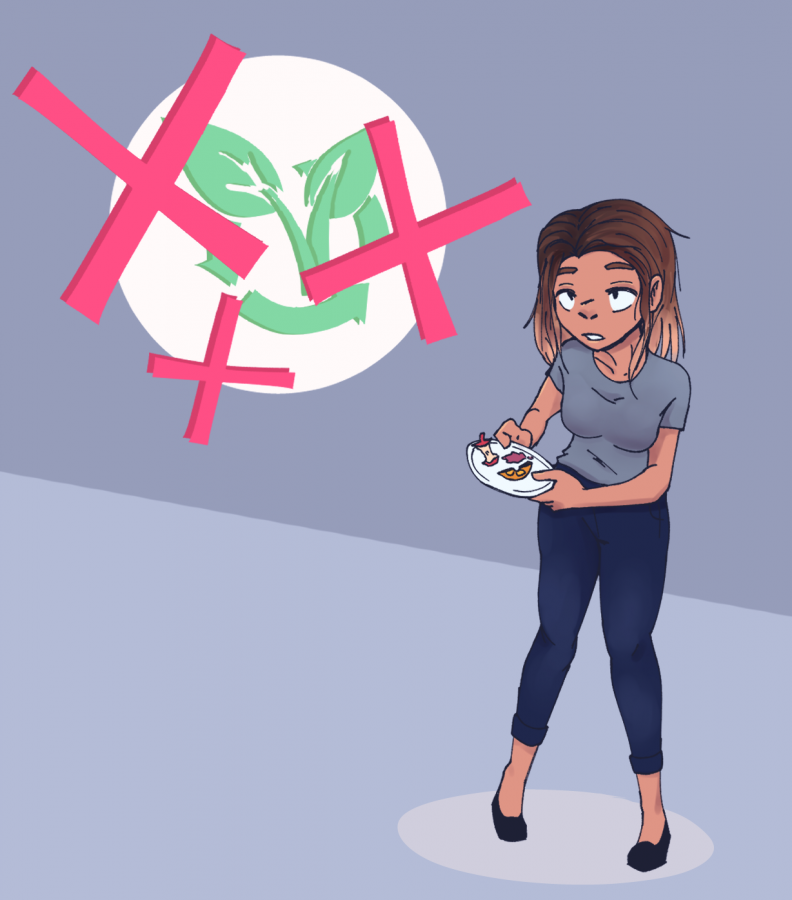Compostable waste destined for landfill under UT’s expired contract
December 18, 2021
Editor’s Note: This article first appeared in the November 2 flipbook.
In some University Housing and Dining locations, items placed in the “compost” bins are not currently being composted because UHD’s contract expired.
UHD stopped composting in March 2020 at the end of their contract. However, in some campus dining halls, bins are still marked as compost, which some students say is confusing.
Neil Kaufman, sustainability coordinator for UHD, said because there are some waste disposal bins that encompass trash, recycling and compost, taking down the compost sign would require UHD to replace the bins altogether. The recycling and trash will still go to their designated locations and kitchen scraps from the large commissary kitchen are composted, Kaufman said, but the items in the compost bin will go to the landfill.
“It’s not a great position to be in because we don’t want to deceive,” Kaufman said. “We’re not trying to give the impression that we’re composting when we’re not. (The bins are) just kind of a relic.”
Adrian Torres, a fifth-year government student, said he did not realize UHD stopped composting in the dining halls.
“I know COVID-19 hit faculty hard and a lot of things are being jerry-rigged right now,” Torres said. “But to leave the student body in the dark about something like that is different.”
Computer science freshman Henry Castillo said while he understands the reasons the University cannot compost, they should at least update the signage.
“It’s misleading that the label says compost … but I think it’s their decision whether or not they want to compost,” Castillo said. “Obviously I would prefer that they do compost, but if they don’t, they could at least change the label to let you know what’s actually happening.”
Kaufman said UHD is hoping to reintroduce composting this spring and add it to their contract with a current University service provider.
“We’re trying to (bring back composting) in a way that reflects the urgency of the need for sustainable waste management but is also within the guidelines of the university,” Kaufman said.
Torres said he hopes that with the new contract, composting can go back to the way it was when he was a freshman.
“I remember my first day eating in this cafeteria, I saw all the different types of bins and I was thrown for a loop,” Torres said. “I had to have someone explain to me the composting thing, so it’s really nice to see that they care enough to make that difference or to have that option.”












